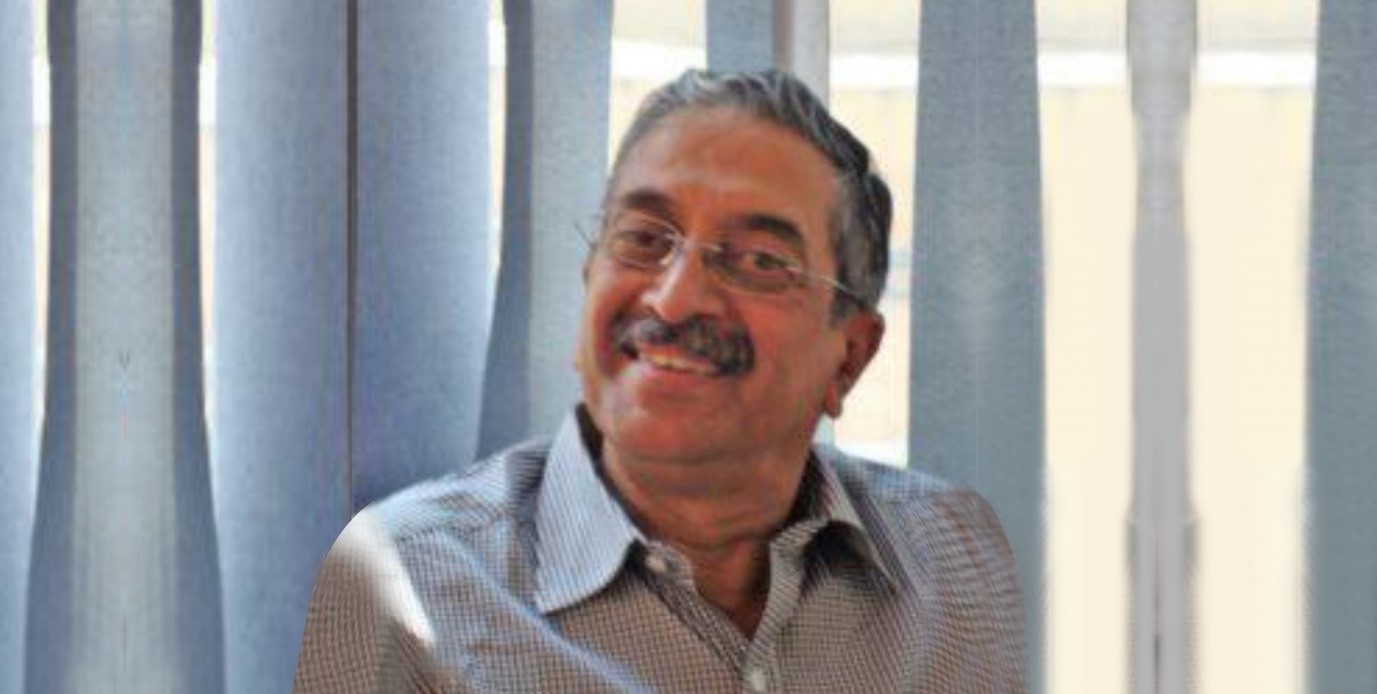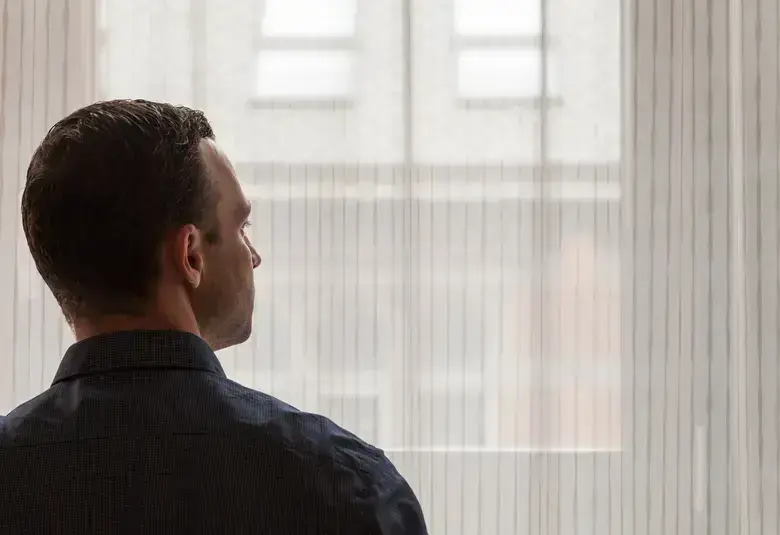These are difficult times, and the world around us seems headed towards a dystopia of sorts. As discussed with Dr. Kalyanasundaram, Bengaluru-based Consultant Psychiatrist, and an Honorary Adviser to the Bengaluru Branch of Richmond Fellowship Society, the risk of mental health issues has increased sharply.
How can people cope with these peculiar circumstances that have become the order of the day? More insight from Dr. Kalyanasundaram.
Indeed, we are already beginning to see signs among people caught in the situations created by the outbreak of coronavirus – corporate professionals struggling to get all work done from home, parents trying to keep their kids occupied and entertained all day, caregivers trying to explain the situation to the most vulnerable senior citizens and keep them safe… and of course, not to forget the many key workers – doctors, nurses, paramedical staff whose life has become one unending workday!
How can people cope with these peculiar circumstances that have become the order of the day? More insight from Dr. Kalyanasundaram:
There are people who are saying ‘I am very stressed now.’, ‘Markets have crashed…’, ‘Work from home is happening with little clarity on things’, ‘My children are at home and they and I don’t know what to do.’, and so on. How does one cope with such situations?
Dr. KS: It is but natural for most to have such thoughts. For many people, the home has become the workspace. Having to deal with stress related to work and home at the same time, can add up to a disproportionate level of distress which many may find tough to cope with.
For example, those working from home may not be able to do so without interference/disturbance from people at home; children may be running around, breaking things, not knowing how to channelize their energy because they are not allowed to go out, and not knowing what to do at home. Parents may have the TV on or may want to talk about some issues while the person is trying to work. In such a scenario, there is bound to be a frequent clash of wills.
The mother (especially a career woman) has multiple roles now – when she was at the office, she could do office related work without any interference from family members, and with minimal thought of work to be done at home / for family. Now this work from home can become doubly troubling and stressful for the mother, and single parents.
Do you think being together with family members for extended periods can cause stress?
Dr. KS: Families that have never been on the same premises during the day time are now all cooped up on the same premises/space. This enforced state can and does result in each person entering into the other’s psychological and mental space very frequently.
In such scenarios, people tend to enter into spaces where they had no business to, and they never did, because they were never home to do that in the first place.
For example, some men may tend to interfere (find fault with the way things are being done at home), where earlier, they had very little idea about what was happening when they went out to work; their major expectation would be that food and other comforts be made available to them when they returned home at the end of the day.
Let alone the children, elderly people are not allowed to / do not want to go out for a walk – something they used to do earlier; their social circles are starting to shrink, and suddenly, they do not have as many opportunities to ventilate – something they would do when they met their friends in a park, or while walking, for example, or chat about things of their choice – be it politics, weather, family… The physical space now available to them is also constrained. It is almost like taking away one’s freedom.
Everybody is getting quarantined at home, fearing infection – this is something they are not used to. It brings in its own problems and stresses.
“This space that you call home, which had its own individual and psychological space for each person, has today become a common space for all its people to stay in, leading to more chaos than usual, and resulting in some of its occupants experiencing stress that they had not had earlier.“
Having said that, now is the time when family members are starting to ‘discover’ some aspects of the others that they had not seen before, or had forgotten, thanks to the daily grind of life. While there are bound to be some ‘negative’ qualities that are immediately visible, this enforced staying together is also an opportunity to recognise the good in people.
One can find people with resilience, people with tenacity, or those with compassion. People with different viewpoints and outlooks are starting to make a conscious effort to bond and overlook some quirks in others – be it adults, children or seniors. Hopefully, one of the positive impacts, of the virus could be the family bonding as a unit and learning to appreciate each other.
“One can look at this virus scare in many ways. One probable empowering way of looking at it is that it is a God/nature given opportunity for us humans to be caring, compassionate and supportive of each other.”
How does one deal with this kind of stress, especially when one has to also work from home?
Dr. KS: I recommend that, if one has to work from home, one finds a designated space to work from, and has a clear understanding with family members that he/she would like to work for some period without any interference or disturbance. Each person at home should, in turn, understand that the other person’s workspace should not be interfered with, since, even though a person is being asked to work from home, he/she has to put in the requisite 7-9 work hours. This is all the more necessary when people do not have the luxury of a separate room or workspace at home.
Another thing to do while working from home is to take some time off (maybe 15 -20 minutes every few hours) from work and spend quality time with children / senior citizens so they feel wanted and cared for. This can improve the chances of the latter not interfering with one’s work schedule or disturbing them while they work from home.
People must have a clear understanding with the family that when one parent (say mother) is working, the other parent (father) takes care of household tasks and children and vice versa. It is not the mother’s responsibility alone to take care of the children – it is everyone’s responsibility.
Children must be given specific tasks that they enjoy doing/can do, rather than merely telling them to ‘Go, do something useful.’ Let them colour, make paper aeroplanes, help in the kitchen, paint and do anything that will keep them occupied and challenging. During such time, the parents too should keep in mind that if the children mess the place, it doesn’t matter much. Instead, get them to clean or, if possible, join them and make cleaning a fun activity.
Tips for those working from home
- Find a designated spot to work from
- Have a clear agreement with family members about the duration of work in a day and when not to be disturbed
- Take some time off during the day and spend with family members especially children and seniors (similar to a coffee break, if you please)
- Support your partner in household and other chores if he/she too is working from home
- Give specific, maybe challenging, tasks to children that would keep them occupied
- Have patience
What about the people in the medical profession? Most of them have not been given any leave, and they cannot work from home either…
Dr. KS: We (doctors, nurses, and others in this profession), no matter what happens, we go to work. And we are exposed and vulnerable to infection. We, however have a responsibility towards our patients and those who work with us, be it the nurses, admin staff, fellow doctors or other support staff. We should ensure that we do not pass on any infection to them, and for that matter, we should do our best to ensure that we do not get any infection in the first place.
Every doctor should take responsibility for such a situation today in the best manner possible. Doctors today are in a position where they have to sacrifice their personal interests for the benefit of the larger cause.
How does the medical staff deal with stress at work?
Dr. KS: Being a doctor is in itself is a stressful job at times! Each of us will have to find some coping mechanisms ourselves.
If someone has a personal problem, I am sure they will talk to a colleague, and, if necessary, to a mental health colleague. Doctors are generally supportive of one another whenever required. Under these circumstances, I am sure they will go the extra mile to help/support their colleagues in distress. I think these things are very essential. But, having said that, unfortunately, many doctors, ignore this dictum “Physician heal thyself. “
Any suggestions on how we can deal with the current crisis?
Dr. KS: “People must wear masks compulsorily, in order to minimise the risk of transmission, as we know that those infected can be asymptomatic and yet can carry the infection with them and spread to unwary persons”. It’s better to be safe than sorry.
Managing your mental health and well-being while in self-isolation, quarantine or lockdown
- Engage in healthy activities that you enjoy and find relaxing.
- Keep regular sleep routines and eat healthy foods.
- Try to maintain physical activity.
- Establish routines as best as possible and try to view this period as a new experience that can bring health benefits.
- Stay connected with friends, family, and colleagues via email, social media, video conferencing or telephone.
- However, avoid news and social media if you find it distressing.
- For those working from home, try to maintain a healthy balance by allocating specific work hours, taking regular breaks and, if possible, establishing a dedicated workspace.
- Remind yourself that this is a temporary period of isolation to slow the spread of the virus.
- Remember that your effort is helping others in the community avoid contracting the virus.
This interview was first published in Citizen Matters, an online civic media website supported by Oorvani Foundation.
For the latest updates on sea.progress.im, subscribe to our Telegram Channel https://bit.ly/telePiM
Our correspondent’s highlights from the symposium are meant as a fair representation of the scientific content presented. The views and opinions expressed on this page do not necessarily reflect those of Lundbeck.




